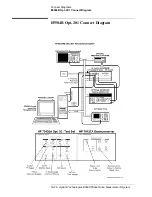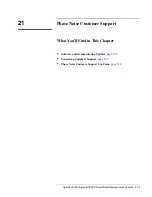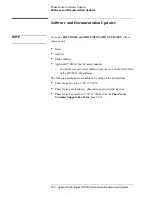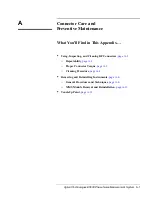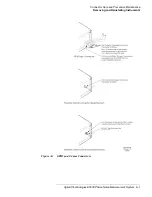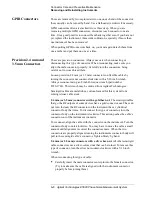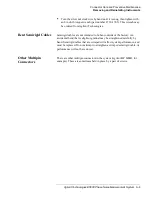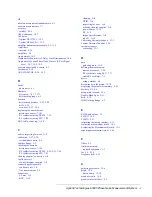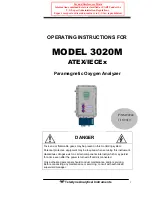
A-8
Agilent Technologies E5500 Phase Noise Measurement System
Connector Care and Preventive Maintenance
Removing and Reinstalling Instruments
GPIB Connectors
These are removed by two captured screw, one on each end of the connector;
these usually can be turned by hand. Use a flathead screwdriver if necessary.
GPIB connectors often are stacked two or three deep. When you are
removing multiple GPIB connectors, disconnect each connector one at a
time. It is a good practice to connect them back together even if you have not
yet replaced the instrument; this avoids confusion, especially if more than
one instrument has been removed.
When putting GPIB connectors back on, you must again detach them from
one another and put them on one at a time.
Precision 2.4 mm and
3.5 mm Connectors
These are precision connectors. Always use care when connecting or
disconnecting this type of connector. When reconnecting, make sure you
align the male connector properly. Carefully join the connectors, being
careful not to cross-thread them.
Loosen precision 2.4 mm (or 3.5 mm) connectors on flexible cables by
turning the connector nut counter-clockwise with a 5/16 inch wrench.
Always reconnect using an 8 inch-lb torque wrench (part number
8720-1765). This wrench may be ordered from Agilent Technologies.
Semirigid cables are metal tubes, custom-formed for this system from
semirigid coax cable stock.
2.4 mm (or 3.5 mm) connectors with a gold hex nut. The semirigid cables
that go the RF outputs of some devices have a gold connector nut. These do
not turn. Instead, the RF connector on the instrument has a cylindrical
connector body that turns. To disconnect this type of connector, turn the
connector body on the instrument clockwise. This action pushes the cable’s
connector out of the instrument connector.
To reconnect, align the cable with the connector on the instrument. Turn the
connector body counterclockwise. You may have to move the cable a small
amount until alignment is correct the connectors mate. When the two
connectors are properly aligned, turning the instruments connector body will
pull in the semirigid cable’s connector. Tighten firmly by hand.
2.4 mm (or 3.5 mm) connectors with a silver hex nut. All other semirigid
cable connectors use a silver-colored nut that can be turned. To remove this
type of connector, turn the silver nut counter-clockwise with a 5/16 inch
wrench.
When reconnecting this type of cable:
•
Carefully insert the male connector center pin into the female connector.
(Try to make sure the cable is aligned with the instrument connector
properly before joining them.)

